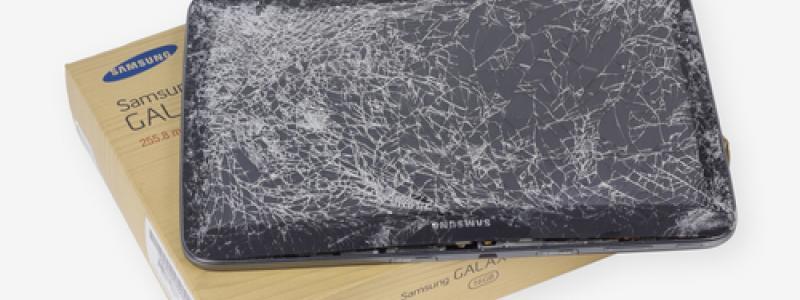It May Be Time To Say Goodbye To Tablets

Around half a decade ago, tablet devices were billed as the next new thing. Indeed, back in 2010, Apple has just launched its first iPad device, with its closest competitor Samsung also busy developing its Galaxy Tab, and other players in the mobile industry also preparing to release their own Android powered tablet devices. But fast forwarding to now, not one new tablet device from a powerhouse name in the industry was featured at this year’s Mobile World Congress tech conference held in the city of Barcelona in Spain. What happened?
Over the last few years, tablet devices have become a commodity product. Dozens of tablet device models of good quality are available in the market with prices not exceeding two hundred bucks, plus when talking about Android powered tablets, you could say that every one of them is just about the same. Because of this, the companies who produce tablets are having a difficult time getting a profit from these types of mobile devices.
Another major factor contributing to the waning sales of tablet devices is that practically everyone already has a perfectly fine tablet at home or at the office. Like they say, it it ain’t broke, don’t fix it. The same applies to today’s tablet owners -- they simply do not see the need to upgrade to a new tablet when their current one can still do the deed.
Moreover, the growing popularity of phablets (phone-tablets, i.e. smartphones with large display screens) have all but decimated the demand for tablet devices. Many of today’s phablet offerings are essentially pocket size tablets anyway. The newest flagship devices unveiled during this year’s Mobile World Congress, Samsung’s Galaxy S7 and Galaxy S7 Edge, and LG’s G5 smartphones have display screens that are more than 5 inches big. Phablets used to be considered rare, but now, the average smartphone in the market is a phablet. In other words, it is now considered normal to own a mini tablet device for everyday use, and to tablet’s detriment, today’s phablets basically can do everything that tablets can.
Still, it is not entirely impossible that tablet devices can rise back from the slump they are going through now. If by some miracle they manage to become good replacements for laptop devices, they just might stand a chance. And there is a growing market for graphic artists opting to use tablets for work instead of desktop computers, laptops, or even Wacoms, so there is some potential there. But a change needs to happen now. Otherwise, it will adios tablets forever.
Related Blog Articles
- Apple: Congress Should Intervene Regarding FBI Order
- 5G Technology: What Can We Look Forward To
- Mobile Payment Systems: Samsung Pay Posts Quicker Growth Rate Than Apple Pay
- Apple, FBI Make Their Case Before Congress Over Device Encryption
- Smartphone Shipment Growth Rate To Decline To 5.7 Percent This Year
- You Can Now Buy BlackBerry’s Priv Android Device At Verizon
- Verizon Fined $1.35 Million By The FCC Over Use Of Supercookies
- MVPD Services You Should Check Out
- Android Lollipop Is Now The Most Widely Used Android Version
- Basics of Smartphone Encryption
Related Blog Posts
- Report: Drug users are using wearable devices during binges
- Spotify allows Android users to reorder playlists; Pandora lets users share tunes to Snapchat Stories
- WhatsApp combats fake news with a new forwarded label
- FCC: Today’s improving mobile networks can impact healthcare costs
- Did Apple Music already overtake Spotify in America?


 Menu
Menu